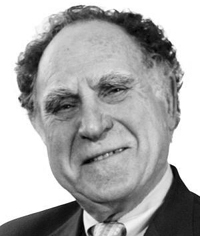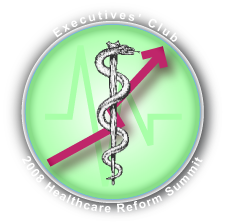How Social Actions Have Pulled the Rug from under Banner Ads
 Facebook’s development schedule epitomizes the “white water, fast iteration” approach to serving company and customer. Although its mishaps are legendary, it succeeds in consistently fielding a mind-numbing array of features, so it is difficult to keep up and very easy to miss the significance of things. To whit, very few people people have noticed that Facebook has quietly revolutionized banner ads through a feature that is maligned by users but gold for marketers. This feature has created two opportunities for e-commerce marketers: a new means of inexpensive market research and an easy way to improve relationships with their viewers. Read on to do this to your competitors before they do it to you. Facebook’s development schedule epitomizes the “white water, fast iteration” approach to serving company and customer. Although its mishaps are legendary, it succeeds in consistently fielding a mind-numbing array of features, so it is difficult to keep up and very easy to miss the significance of things. To whit, very few people people have noticed that Facebook has quietly revolutionized banner ads through a feature that is maligned by users but gold for marketers. This feature has created two opportunities for e-commerce marketers: a new means of inexpensive market research and an easy way to improve relationships with their viewers. Read on to do this to your competitors before they do it to you.
[…]
Regina Herzlinger Keynotes Chicago Healthcare Executives Forum 35th Anniversary
Five-Point Prescription for U.S. Health Care—Involving Patients
 CHEF Chicago’s hospital executives listened raptly to Dr. Regina Herzlinger‘s impassioned message for transforming U.S. health care at their 35th anniversary celebration this month at the J.W. Marriott in Chicago. Dr. Herzlinger is respected and renowned for her message, so there were few surprises. The most distinctive element of her point of view is her strategy for taking a retail-led approach to transforming health care. She is very market- and consumer-focused, which is refreshing because it relies on the market and customers at least as much as the government. “Who Killed Health Care?” is her latest book, and she is a regular advisor to federal and state government officials. CHEF Chicago’s hospital executives listened raptly to Dr. Regina Herzlinger‘s impassioned message for transforming U.S. health care at their 35th anniversary celebration this month at the J.W. Marriott in Chicago. Dr. Herzlinger is respected and renowned for her message, so there were few surprises. The most distinctive element of her point of view is her strategy for taking a retail-led approach to transforming health care. She is very market- and consumer-focused, which is refreshing because it relies on the market and customers at least as much as the government. “Who Killed Health Care?” is her latest book, and she is a regular advisor to federal and state government officials.
[…]
 Social Business Engagement Summit Keynote—Stan Rapp, Engauge kicked off the first day of Alterian’s 2010 User Conference, Engaging Times Summit. He picked up David’s theme but drilled down into the history of (mostly direct) marketing to explain how powerful the transformation will be. Social Business Engagement Summit Keynote—Stan Rapp, Engauge kicked off the first day of Alterian’s 2010 User Conference, Engaging Times Summit. He picked up David’s theme but drilled down into the history of (mostly direct) marketing to explain how powerful the transformation will be.
We now have the most narcissistic consumer ever, they want total engagement, personal connection. Marketing priorities are all wrong: marketers invest in TV and print for which they get low returns while they underinvest in social media. Mass media is dying. Their leaders don’t understand social media (“one to one to every one”), so they can’t create appropriate strategy. New technologies like iPad, mobile, geolocation need strategy. […]
 Social Business Engagement Summit CEO Address—David Eldridge, Alterian set the tone of Alterian’s 2010 User Conference, Engaging Times Summit, with these highlights: Social Business Engagement Summit CEO Address—David Eldridge, Alterian set the tone of Alterian’s 2010 User Conference, Engaging Times Summit, with these highlights:
The change of control we’re witnessing is a major societal change. Young people immerse themselves in social media, don’t watch TV at all. Brands have lost trust, and there is major misalignment, too much marketing speak. Collaboration is the thing now, people don’t want to be interrupted (by marketers). Brands need to reduce broadcast and increase listening. […]
In the knowledge economy, people are motivated by greater autonomy, mastery, and purpose—not by carrots or sticks.. connectivity is second only to a water pump in its significance to a village.. It will not be enough, as it was back in the early Web, to just leave a website lying around to be found. Business has to become a travelling exhibit, a movable market stall that can be adjusted and placed wherever people are or want to be.. Marketers have begun to view social networks as a significant marketing contact point (and perhaps even more important than traditional channels) for procuring consumer data and knowledge.. people are diving into the Web 2.0 and 3.0 pools before they even know with whom they are swimming.. In 2010 we will see more public agencies taking risks to engage in this sort of “flat” information sharing and insight gathering.. sociology will rapidly become the new economics. […]
Summary of how LinkedIn will transform the economics of cross-border deal making.. and opportunities and threats for professionals […]
How you can use LinkedIn to maximize the number of clients in your portfolio that map to your firm’s unique selling proposition—boosting profitability […]
“Yes,” Says Team of Healthcare Experts, Employer CEOs and Patient Representative at the Executives’ Club of Chicago, “But You Must Change Your Ways”
 Honestly Assessing Quality—Engaging Consumer Empowerment—Trading in the Ferrari for a Chevy Honestly Assessing Quality—Engaging Consumer Empowerment—Trading in the Ferrari for a Chevy
The Executives’ Club of Chicago convened its healthcare reform summit at the Hilton Chicago on 20 February 2008, drawing on diverse expertise. Ian Morrison, Ph.D., healthcare futurist, gave the keynote and moderated two panels: first, the healthcare expertise panel with Dean Harrison, CEO Northwestern Memorial Healthcare; William Novelli, CEO AARP; Scott P. Serota, CEO BlueCross BlueShield Association; and second, the business executive panel with Andrew M. Appel, Chairman AON Consulting; John A. Edwardson, CEO, CDW; John B. Menzer, Vice Chairman and Administrative Officer, Wal-Mart Stores. Robert L. Parkinson, CEO, Baxter Healthcare gave an insightful point of view on recommended actions to close the event.
There was broad agreement that the U.S. healthcare system was broken, and speakers offered excellent insights and perspectives about how to fix the system. However, what they didn’t say was as interesting as what they did, and I will address two key issues in […]
At the turn of the 21st Century, converging social, technological and political changes demand profound changes in how organizations relate to their customers. These changes question many of the assumptions on which 20th Century businesses are built. To turn this situation to their advantage, executives need to approach how they create value for their customers, quickly and proactively. They must build a collaborative network of partners to discover, design and deliver differentiated experience to customers.
The new meaning of customer experience Pervasive e-business and global sourcing are creating new centers of excellence for knowledge, services and manufacturing around the world—these clusters of people and companies are technology-enabled, well educated and highly motivated. They will impact incumbents in several ways: 1) they represent new collaborative resources that can add significantly to the enterprise expertise network; 2) they are developing into high-growth consumer markets; 3) they will create new offerings that may change the rules of your business since their companies do not have legacy organizations and cost structures. Web 2.0 is mobilizing customers in high-value mature markets—”Web 2.0″ technologies are user-friendly, collaborative tools and work processes that enable customers to connect with each other and collaborate spontaneously. Examples are […]
|
|
![]() Facebook’s development schedule epitomizes the “white water, fast iteration” approach to serving company and customer. Although its mishaps are legendary, it succeeds in consistently fielding a mind-numbing array of features, so it is difficult to keep up and very easy to miss the significance of things. To whit, very few people people have noticed that Facebook has quietly revolutionized banner ads through a feature that is maligned by users but gold for marketers. This feature has created two opportunities for e-commerce marketers: a new means of inexpensive market research and an easy way to improve relationships with their viewers. Read on to do this to your competitors before they do it to you.
Facebook’s development schedule epitomizes the “white water, fast iteration” approach to serving company and customer. Although its mishaps are legendary, it succeeds in consistently fielding a mind-numbing array of features, so it is difficult to keep up and very easy to miss the significance of things. To whit, very few people people have noticed that Facebook has quietly revolutionized banner ads through a feature that is maligned by users but gold for marketers. This feature has created two opportunities for e-commerce marketers: a new means of inexpensive market research and an easy way to improve relationships with their viewers. Read on to do this to your competitors before they do it to you.
 CHEF Chicago’s hospital executives listened raptly to Dr. Regina Herzlinger‘s impassioned message for transforming U.S. health care at their 35th anniversary celebration this month at the J.W. Marriott in Chicago. Dr. Herzlinger is respected and renowned for her message, so there were few surprises. The most distinctive element of her point of view is her strategy for taking a retail-led approach to transforming health care. She is very market- and consumer-focused, which is refreshing because it relies on the market and customers at least as much as the government. “Who Killed Health Care?” is her latest book, and she is a regular advisor to federal and state government officials.
CHEF Chicago’s hospital executives listened raptly to Dr. Regina Herzlinger‘s impassioned message for transforming U.S. health care at their 35th anniversary celebration this month at the J.W. Marriott in Chicago. Dr. Herzlinger is respected and renowned for her message, so there were few surprises. The most distinctive element of her point of view is her strategy for taking a retail-led approach to transforming health care. She is very market- and consumer-focused, which is refreshing because it relies on the market and customers at least as much as the government. “Who Killed Health Care?” is her latest book, and she is a regular advisor to federal and state government officials. Social Business Engagement Summit Keynote—Stan Rapp, Engauge kicked off the first day of Alterian’s 2010 User Conference, Engaging Times Summit. He picked up David’s theme but drilled down into the history of (mostly direct) marketing to explain how powerful the transformation will be.
Social Business Engagement Summit Keynote—Stan Rapp, Engauge kicked off the first day of Alterian’s 2010 User Conference, Engaging Times Summit. He picked up David’s theme but drilled down into the history of (mostly direct) marketing to explain how powerful the transformation will be. Social Business Engagement Summit CEO Address—David Eldridge, Alterian set the tone of Alterian’s 2010 User Conference, Engaging Times Summit, with these highlights:
Social Business Engagement Summit CEO Address—David Eldridge, Alterian set the tone of Alterian’s 2010 User Conference, Engaging Times Summit, with these highlights: Honestly Assessing Quality—Engaging Consumer Empowerment—Trading in the Ferrari for a Chevy
Honestly Assessing Quality—Engaging Consumer Empowerment—Trading in the Ferrari for a Chevy